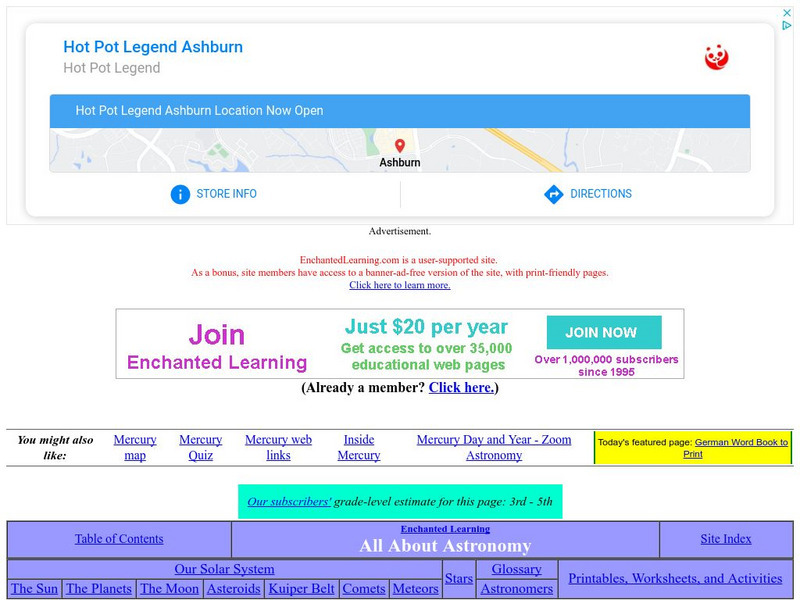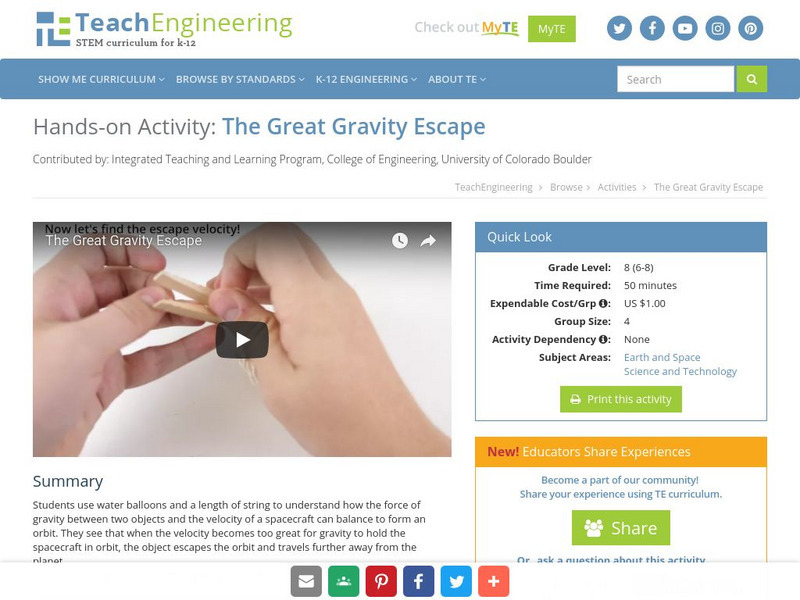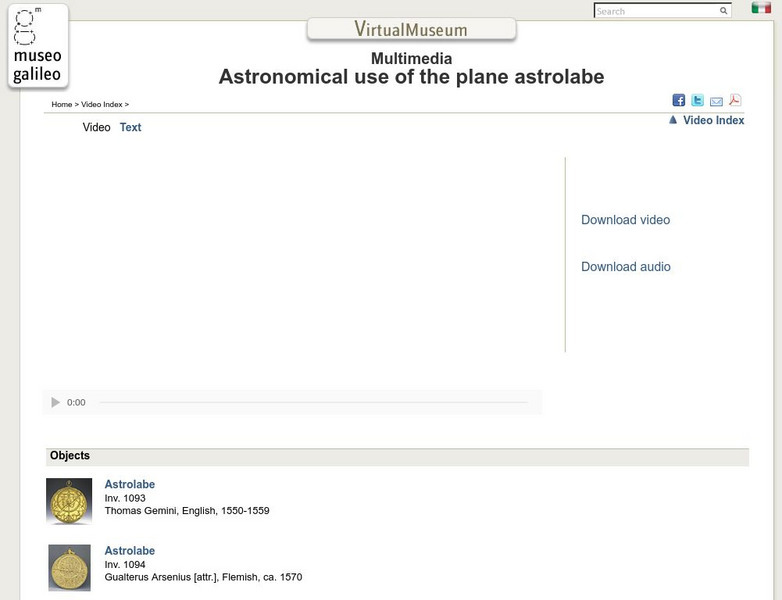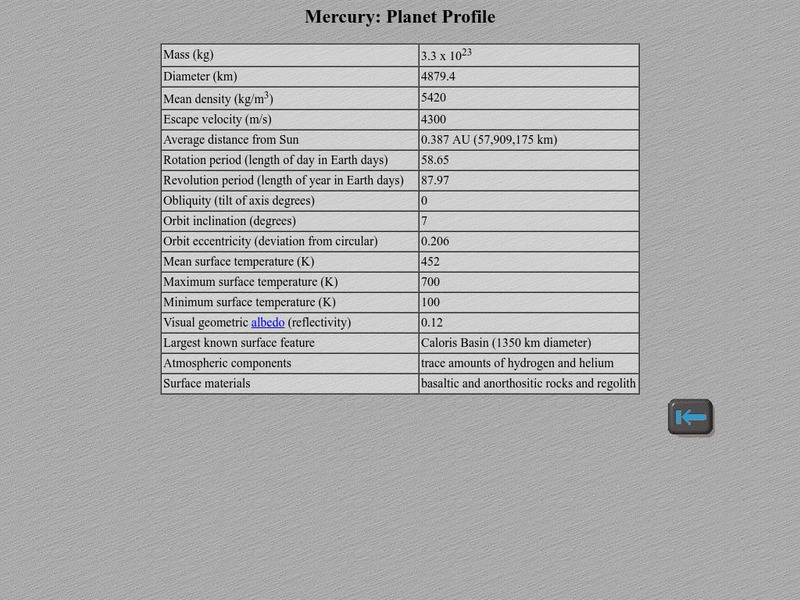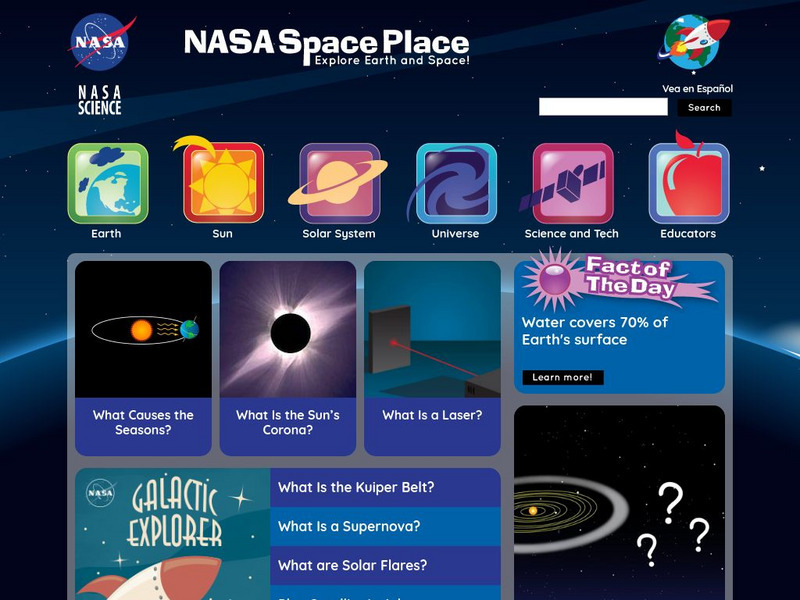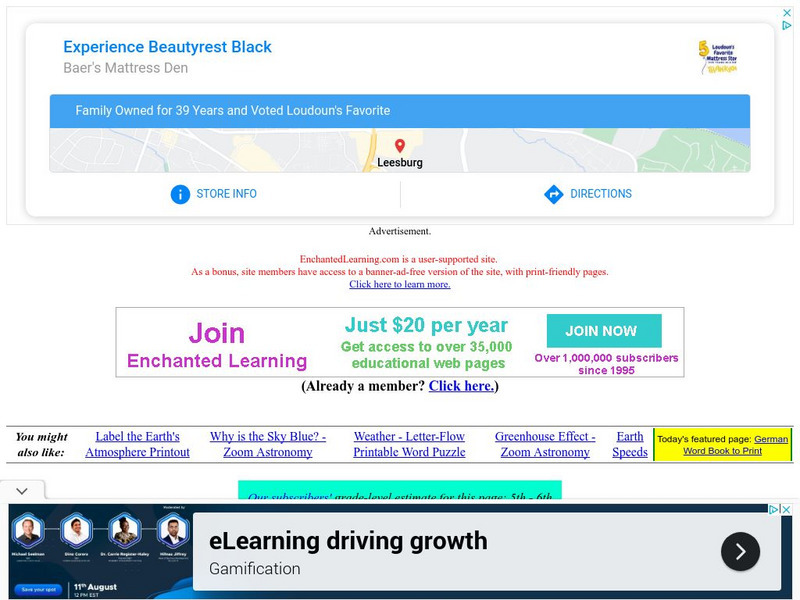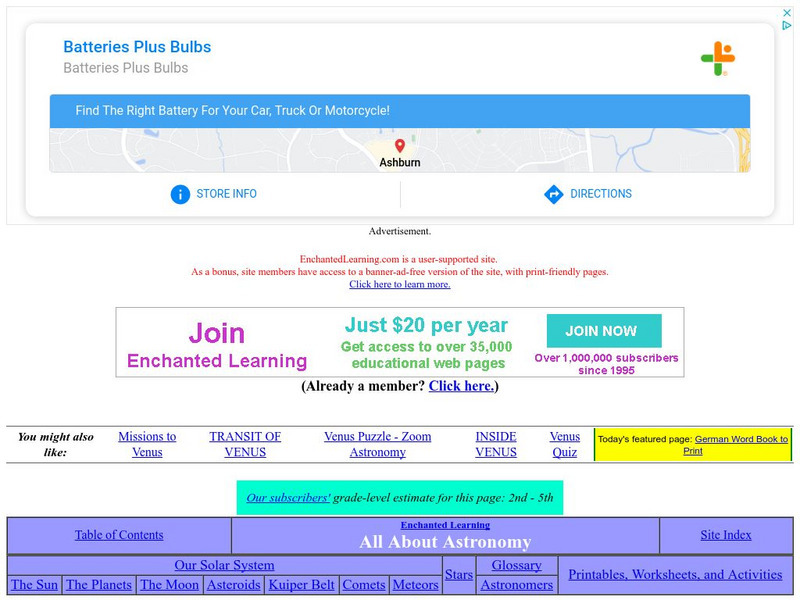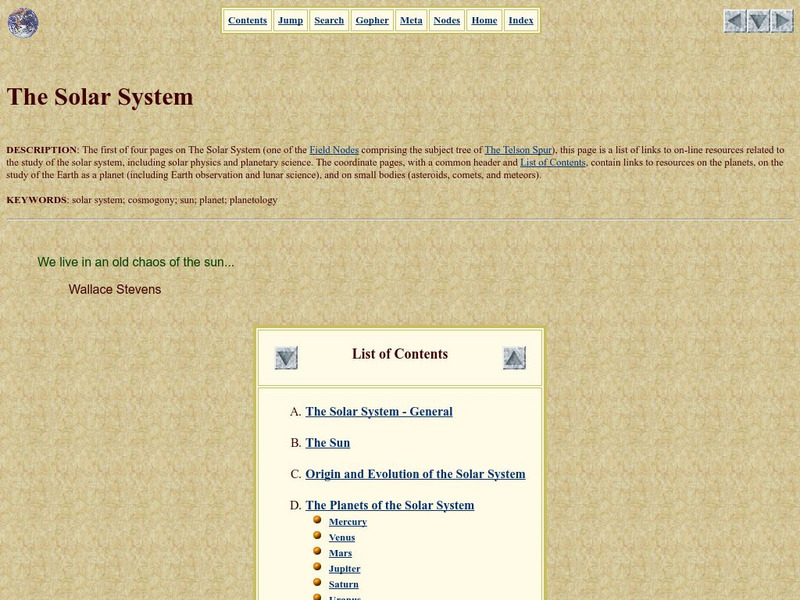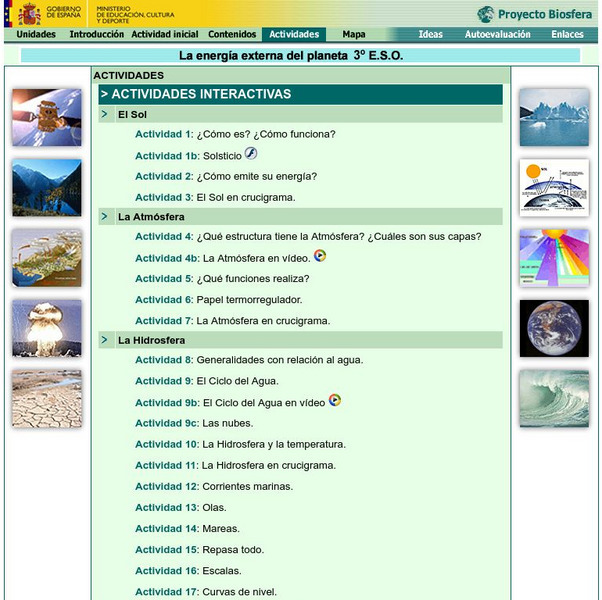Hi, what do you want to do?
Enchanted Learning
Enchanted Learning: All About Space: Mercury
The planet Mercury is profiled with information about its size, mass, atmosphere, length of day, and the like. Features include interactive activities and learning exercises.
Scholastic
Scholastic: Study Jams! Science: Our Solar System: The Universe
A video and a short multiple-choice quiz on the Universe and what it is made up of.
PBS
Pbs Learning Media: Space Math Scale of the Solar System
Practice Space Math! Math is the cornerstone of space travel. Familiarize yourself with all the ways math can help you study the solar system. Practice math problems in areas such as speed of light, the distance of planets to the sun,...
TeachEngineering
Teach Engineering: The Great Gravity Escape
Students use water balloons and a length of string to understand how gravity and the velocity of a spacecraft balance to form an orbit. They see that when the velocity becomes too great for gravity to hold onto an object, the object...
Institute and Museum of the History of Science
Museo Galileo: Multimedia: Video: Astronomical Use of the Plane Astrolabe
Invented in ancient Egypt, the plane astrolabe is a tool used by astronomers and navigators to determine time and identifying positions of the Sun, Moon, stars, and planets. Read text or view the video to understand the details of its...
NASA
Nasa: Mercury Planet Profile
This page from NASA provides a chart of statistical information on planet Mercury. Its mass, diameter, average temperature, and distance from the Sun are among the characteristics listed.
NASA
Nasa: The Space Place
This site from NASA's Space Place is geared towards early elementary learners. It offers detailed instructions for crafts and activities related to space, games and a teacher resource area. Students can also ask an expert at this site.
Curated OER
Exploratorium: Your Weight on Other Worlds
Want to lose weight in a hurry? Just step on a scale on almost any other planet! This page allows you to enter your weight on Earth and it will calculate your weight on all of the other planets, some moons and even some stars. Requires a...
TeachEngineering
Teach Engineering: Blazing Gas
Students are introduced to our Sun as they explore its composition, what is happening inside it, its relationship to our planet (our energy source), and the ways engineers help us learn about it.
Polk Brothers Foundation Center for Urban Education at DePaul University
De Paul University: Center for Urban Education: Learning About the Solar System [Pdf]
"Learning about the Solar System" is a one page, nonfiction, reading passage about scientists and learning about our solar system and how it works. It is followed by constructed-response questions which require students to provide...
Polk Brothers Foundation Center for Urban Education at DePaul University
De Paul University: Center for Urban Education: Learning About the Solar System [Pdf]
"Learning about the Solar System" is a one page, nonfiction, reading passage about the Milky Way gallaxy and what it takes to be a scientist. It is followed by constructed-response questions which require students to provide evidence...
Polk Brothers Foundation Center for Urban Education at DePaul University
De Paul University: Center for Urban Education: Learning About the Solar System [Pdf]
"Learning about the Solar System" is a one page, nonfiction, reading passage about the Milky Way gallaxy and how scientists learn about it over time. It is followed by questions which require students to provide evidence from the story;...
Johns Hopkins University
New Horizons Website
This site from the Solar System Exploration section of NASA provides an overview of the space mission to Pluto, Charon, and the fringes of our Solar System. It describes the Kuiper Belt, and the objects involved with it, provided links...
Enchanted Learning
Enchanted Learning: The Earth's Atmosphere
The Earth's atmosphere is a thin layer of gases that surrounds the Earth. It composed of 78% nitrogen, 21% oxygen, 0.9% argon, 0.03% carbon dioxide, and trace amounts of other gases. This thin gaseous layer insulates the Earth from...
Enchanted Learning
Enchanted Learning: All About Space: Venus
All About Space profiles the planet Venus with information about its size, mass, atmosphere, length of day, and the like. Features include interactive activities and learning exercises.
Other
Christopher Crockett: The Astronomy Word of the Week Is "Barycenter"
While astronomers and philosophers have long mused on the possibility of other solar systems, the first planets confirmed to orbit a star other than our Sun weren't found until 1992. The reason it took so long is that it's really hard!...
ClassFlow
Class Flow: Phases of the Moon
[Free Registration/Login Required] This flipchart demonstrates how the positions of the Earth, Moon and Sun cause phases of the Moon. It also illustrates the positions of the Earth, Moon, and Sun during a day and a month's time.
Other
The Telson Spur: The Solar System
This is a list of links to online resources related to the study of the planets. It has a literary theme associated with the Lewis Carrol poem "The Hunting of the Snark" with many quotes from literature and science. Navigation tools...
Sophia Learning
Sophia: The Transit of Venus
When Venus comes directly between the Earth and the Sun, it is called a transit. During the transit, the planet Venus blocks out a portion of the Sun's image, appearing as a black dot on the face of the Sun. Over time, the black dot...
TED Talks
Ted: Ted Ed: A Guide to the Energy of the Earth
Energy is neither created nor destroyed - and yet the global demand for it continues to increase. But where does energy come from, and where does it go? This video examines the many ways in which energy cycles through our planet, from...
National Institute of Educational Technologies and Teacher Training (Spain)
Ministerio De Educacion: La Energia Externa Del Planeta
What do you know about the energy that comes to our planet? It is the energy from the sun but how does it work? What interaction produces with the atmosphere and hydrosphere? What effects produce in the geosphere? It contains 17...
University Corporation for Atmospheric Research
Ucar: A Global Look at Moving Air: Atmospheric Circulation
Even with disruptions like weather fronts and storms, there is a consistent pattern to how air moves around our planet's atmosphere. This pattern, called atmospheric circulation, is caused because the Sun heats the Earth more at the...





